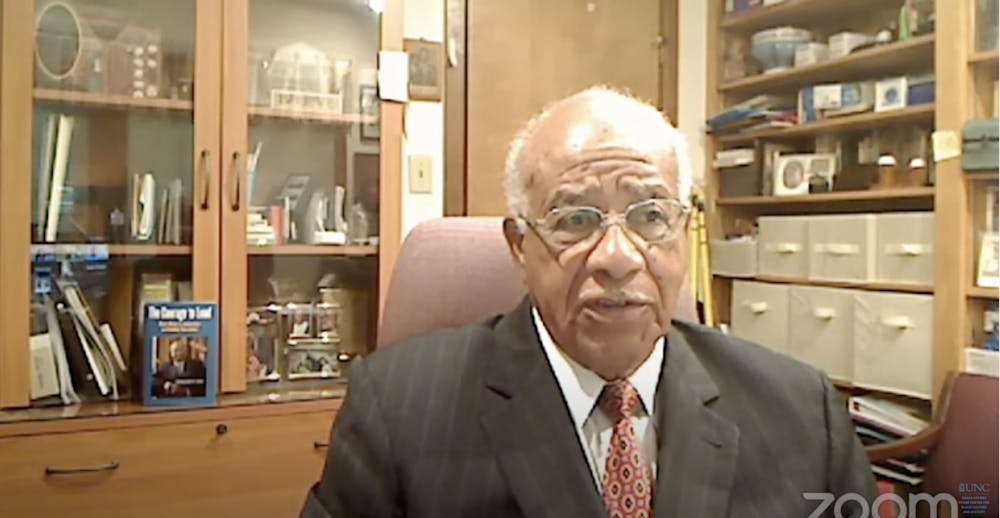The road to public service for Howard Lee, the first Black mayor of Chapel Hill and a former North Carolina state senator, began just outside a public bathroom when he was 15 years old.
During an Oct. 19 conversation with The Sonja Haynes Stone Center for Black Culture and History, Lee recalled being “roughed up” as a teenager by a group of white men after he used a whites-only bathroom. The incident changed his life, he said.
“I made a commitment to myself at that time, I would never leave the South,” Lee said. “I would stay. I would fight. I didn't care how much it cost or how long it took me, I would do it. I have never left the South.”
Lee, now 87, discussed over Zoom his experience in politics and public service during and after the civil rights movement, his advice for young people seeking to affect change and his thoughts on the current political environment.
The Zoom event was moderated by Moriah James, a third-year doctoral student in the department of anthropology, and Daniel Johnson, Roy H. Park fellow at the Hussman School of Journalism and Media.
Lee, who was born in 1934, grew up on a sharecropper's farm in Georgia. After attending schools in the state and being drafted and honorably discharged from the U.S. Army, Lee began his time in Chapel Hill in 1964 as a graduate student in UNC's School of Social Work. He was elected as the first Black mayor of Chapel Hill in 1969 and served three terms in office.
The talk covered an array of topics ranging from Lee’s work in racial equity in education to the Chapel Hill public transit system, which he spearheaded. As mayor, Lee also implemented the first police social work initiative, now the Police Crisis Unit in the Chapel Hill Police Department.
He went on to serve on the North Carolina State Board of Education and in the N.C. Senate — among other governmental organizations — where he advocated for education reform.
Lee said while he's pleased with some of the efforts since made to advance equity in the educational system, there's still much left to be achieved.




